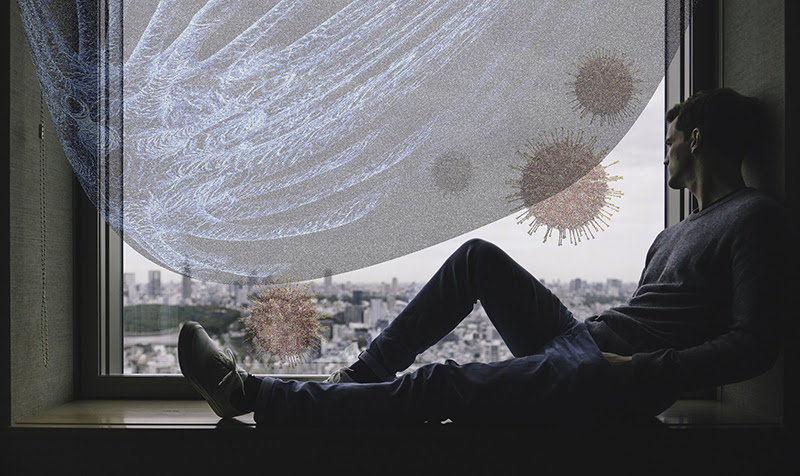Even without having caught the virus, we would be likely to see our cognitive capacities altered, only because of the stress created by the pandemic in which we have been immersed for almost two years. This is the finding of a Canadian study published on December 1, conducted by two Montreal research centers, McGill University and the Neurological Hospital Institute.
Canadian scientists have noticed that people who are most worried about the epidemic are slower to process information and their memory is less efficient. These incidents are all the more worrisome at a time when crucial decisions must be made in the area of health, such as on vaccination, underlines this analysis.
“While a series of recent works have documented the direct effects of the pandemic on mental health, less is known about the consequences it could have on cognitive functioning,” points out in its introduction the study, published in the American journal PLOS ONE. This is now done: more than 1500 Americans were surveyed online between April and June 2020 about “perceived risk of contracting Covid-19, financial stress and general stress”.
The questions included how often they felt nervous or stressed, whether they were following news about the epidemic continuously and whether they were worried about a “lack of housing, food or medicine” for themselves and their loved ones in the weeks following the questionnaire, the Quebec newspaper La Presse said.
The respondents also completed a battery of psychological tests “to measure their basic cognitive abilities,” the release said. The result: performance in “simple cognitive tasks” decreased compared to the pre-crisis period, including a decrease in concentration skills.
“The deficiencies associated with anxiety, observed in this case, suggest that in times of high stress, such as a global pandemic, our ability to think, plan and assess risks decreases,” warns Kevin da Silva Castanheira, a graduate of the Department of Psychology at McGill University and lead author of the study, in a statement.
The scientific study also notes that the most anxious individuals were those who had “a distorted perception of the levels of risk described”: they overestimated unlikely eventualities and underestimated those that were more realistic. In other words, the more anxious the participants were, the more likely they were to make risky decisions, as their ability to judge is impaired, especially in the field of vaccination, notes La Presse.
The participants’ attitude to risk was measured using a simulation that asked them to make “a series of hypothetical choices” between a “certain” option, which promised to earn a certain amount of money, and a “risky” option, where there was a chance of not earning anything.
In the most anxious individuals, the scientists observed that “their sensitivity increased in the face of the probabilities they had of taking risks”. And these individuals are likely to enter a vicious circle, being all the more on the lookout for information about the epidemic and vaccination, the study continues.
The participants’ attitude to risk was measured using a simulation that asked them to make “a series of hypothetical choices” between a “certain” option, which promised to earn a certain amount of money, and a “risky” option, where there was a chance of not earning anything.
In the most anxious individuals, the scientists observed that “their sensitivity increased in the face of the probabilities they had of taking risks”. And these individuals are likely to enter a vicious circle, being all the more on the lookout for information about the epidemic and vaccination, the study continues.
“In the future, it will be important to understand why some people respond more strongly to stress than others in order to suggest coping strategies to mitigate its effects,” Dr. Madeleine Sharp, a researcher and neurologist at the Neurological Hospital Institute, says in the release.
The scientific study also believes that more work should be done to determine how this level of stress may affect adherence to public health measures, especially regarding “the far from universal acceptance of vaccination” – while taking into account “individual differences” in addition to the circumstances of the epidemic.
The scientific study also believes that more work should be done to determine how this level of stress may affect adherence to public health measures, especially regarding “the far from universal acceptance of vaccination” – while taking into account “individual differences” in addition to the circumstances of the epidemic.



Comment here